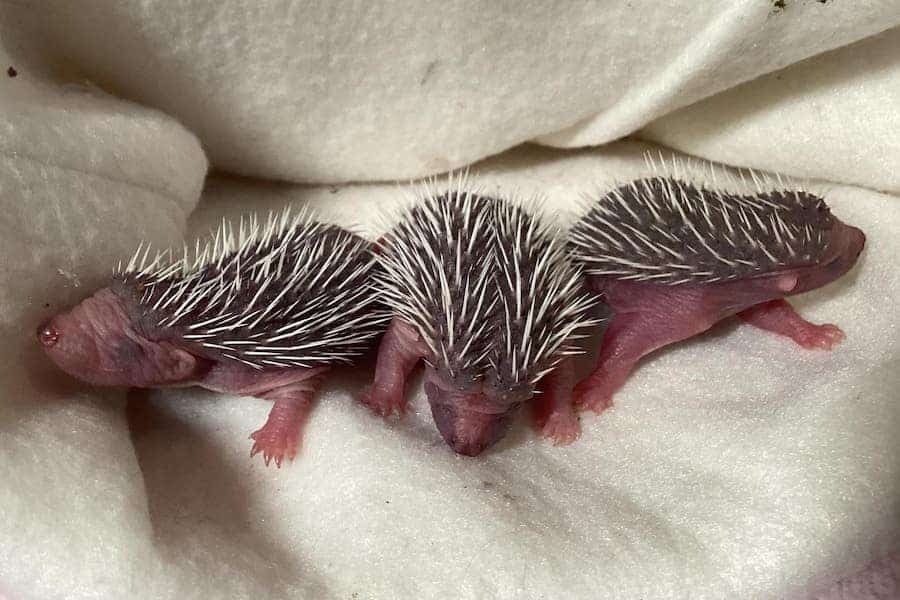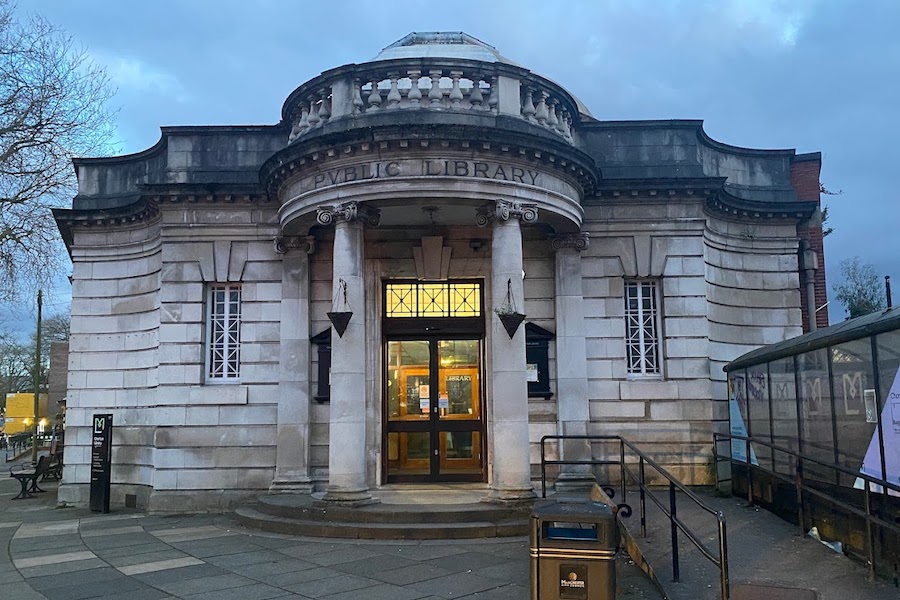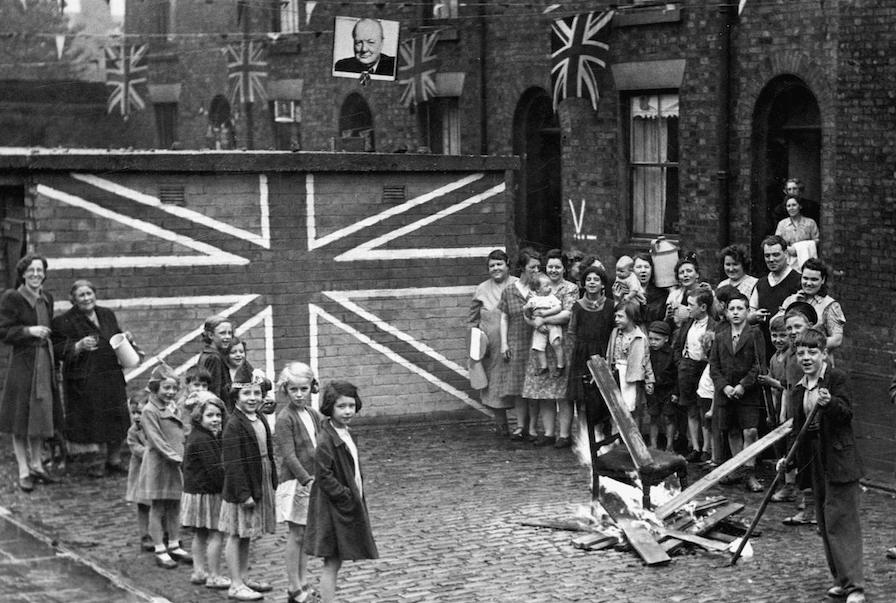“It was my calling” Meet the wildlife hero who has dedicated her life to saving the UK’s favourite animal
- Written by Thom Bamford
- Last updated 4 months ago
- Charity, City of Manchester, Featured, People

In a quiet corner of Withington, behind the rows of red-bricked houses and tucked between blooming gardens, there’s a small hospital saving lives—though not in the way you might expect.
It doesn’t hum with the sounds of monitors or hurried footsteps. Instead, there’s a chorus of soft snuffles, the warmth of heat pads, and the faint rustle of straw.
In her home, Barbara Roberts is nursing one of Britain’s most iconic—and most endangered—creatures: the humble hedgehog.
Once a common sight in gardens, parks, and winding country lanes, hedgehog numbers have plummeted in recent decades. They’ve been pushed to the brink by roads, pesticides, habitat loss, and urban development. A species that once thrived alongside us is quietly disappearing. For many, this might seem like just another unfortunate consequence of modern life.
But not for Barbara.
For more than four decades, she has dedicated her life to these spiny little creatures—saving the injured, caring for the sick, and hand-rearing the orphaned. The Withington Hedgehog Care Trust, run entirely from her home, has become a last chance for hedgehogs in Greater Manchester. Here, heartbreak is turned into hope—one small, fragile life at a time.
Withington Hedgehog Care Trust

“Hedgehogs are like the canary in the coal mine,” Barbara explained. “They’re telling us something about the health of our environment. And right now, they’re struggling.”
The statistics are sobering. Hedgehog populations in the countryside have fallen by 50% since the year 2000. In urban areas, the decline stands at 30%. Neatly fenced gardens, concrete driveways, pesticides, strimmers, and even climate change have made survival almost impossible. Hedgehogs simply don’t stand a chance in a world we’ve unintentionally made hostile for them.
“It’s heartbreaking when we see the state some of them come in,” Barbara said. “It’s not their fault—they’re just trying to survive.”

A lifetime dedicated to hedgehogs
Barbara’s story began when she was just fifteen years old. “I’d see hedgehogs on the road, and I couldn’t leave them there. I’d take them home and do my best to nurse them back to health,” she said.
Back then, advice was rudimentary—bread and milk, which we now know is harmful.
“Some survived, some didn’t and those that passed away, we buried in the middle of our garden.”
Years later, during a difficult time in her life, a hedgehog fell into her pond and needed care. Bedridden at the time, Barbara knew something had to be done. “I lived next door to a vet who told me he’d reared hedgehogs in his Aga, so I learned how vital warmth was for their survival. From that moment, I knew—I couldn’t go back to the NHS.
“My calling was to care for hedgehogs.”
And so began her life’s work: a commitment that spans 43 years, over 400 rescued hedgehogs annually, and countless sleepless nights.
The amazing Barbara Roberts
Barbara’s days begin at 5 a.m. and often don’t end until well past midnight. “I start by cleaning all the cages and testing poo samples for parasites and worms. There’s medication to give, babies to feed every two hours, and new admissions throughout the day—we never know what to expect.”
Her work is relentless. There are instruments to wash and sterilise, bigger hedgehogs to feed, and gardens to assess for safe releases. “We release hedgehogs ourselves because we need to be certain they’ll be safe. It’s a huge responsibility, and there are only three of us—all volunteers.”
Barbara shrugs off words like challenge.
“I’ve been doing this so long I know what works—especially for the tiny babies. People leave it too late to bring them in or feed them the wrong foods, like mealworms, which give them metabolic bone disease. That’s why education is so important.”

Barbara has countless rescue stories, but one stands out as her most memorable.
In the early 2000s, hedgehogs on the island of Uist, Scotland, were being culled. The RSPB claimed they were eating oyster catcher eggs, endangering local bird populations. Determined to stop the cull, Barbara took extraordinary action.
“I wrote a letter petitioning the Queen to intervene. When I hadn’t heard back after two weeks, I called the Palace. I found their number in the directory and spoke to someone who told me it takes Her Majesty two weeks to reply to letters. I told them, ‘She needs to intervene now.’”
Barbara laughs softly as she remembers the surreal moment. “Eventually, I received a letter back from the Queen saying she had forwarded my concerns to the Scottish Parliament. The cull was stopped, and people went onto the island with night-vision cameras to rescue as many hedgehogs as they could. They were transported to Hessilhead Wildlife Centre before being flown to the UK and relocated. That was a victory I’ll never forget.”

Barbara is quick to highlight the benefits hedgehogs bring.
“They are a gardener’s best friend,” she said.
“They eat all the pests you don’t want, like greenfly and blackfly. If we all had a hedgehog, we wouldn’t need pesticides.”
Her message is simple: saving hedgehogs is good for both the environment and the soul.
How to help a hedgehog
Barbara believes everyone has a role to play in saving hedgehogs.
- Check your gardens for dangers. Make sure ponds have ramps so hedgehogs can climb out.
- Build a feeding station with water and chicken-based cat or dog food (no fish varieties).
- Avoid mealworms and leave a wild patch in your garden—real grass and natural habitats are vital.
- In winter, put a ping-pong ball in water bowls to stop them freezing.
“If you find a sick or injured hedgehog, don’t wait,” Barbara said. “Pick it up, put it in a box with air holes, and take it to a rescue centre. Knowing when to intervene could save a life.”
Winning the British Empire Medal
Barbara’s extraordinary dedication was recently recognised when she was awarded the British Empire Medal in the New Year’s Honours list. True to her modest nature, she confessed, “You don’t do it for an honour, you do it because you care. But it has been lovely.”
Being recognised for a lifetime of dedication to hedgehog rehabilitation was, for Barbara Roberts, a moment of immense pride—not just for herself, but for the countless hedgehogs she has saved and released back into the wild.
“It was an honour,” Barbara said, reflecting on receiving her British Empire Medal. “It wasn’t just for me, but for every single hedgehog I’ve cared for and for my involvement in saving the Uist hedgehogs. That moment meant everything.”
However, the experience itself was not without its disappointments. Despite notifying organisers of her disability and requesting accessible arrangements, Barbara encountered unexpected hurdles.
“The ceremony was held somewhere with no lift, only stairs—which I simply can’t manage. It was disheartening. They didn’t consider people like me at all,” she recalled. Worse still, the post-ceremony refreshments were poorly planned, leaving many attendees without so much as a cup of tea. “I was lucky to get a bourbon biscuit, thanks to someone grabbing it for me. Even the milk ran out, and nobody seemed to care.”
The BBC, who had spent the day with Barbara, were reportedly shocked by the lack of accessibility and consideration. “It would have been nice to sit around a table, share stories, and reflect on what our medals meant. Instead, it was chaotic—a bit of a free-for-all.”
But recognition comes in many forms, and for Barbara, one particularly golden moment stands out
In May 2015, she attended the Queen’s Garden Party at Buckingham Palace. “I was eating this little chocolate cake with the Queen’s crest in edible gold on it,” she said with a laugh. “I spotted Prince Charles—now King Charles—coming towards me, so I stuffed the whole thing in my mouth and licked the crumbs off my fingers. When he reached me, I had the stickiest handshake of my life!”
The Prince, as he was then, was undeterred. Barbara recalls a warm, lengthy conversation about hedgehogs. “He told me to wear my medal every day and be proud of it.”
Later that year, during a ceremony at St Paul’s Cathedral, the words spoken resonated deeply with her: ‘Who’d have thought we’d be giving out medals for the conservation of hedgehogs?’
“It was lovely,” Barbara said. For her, every recognition is a chance to remind the world of the small, vulnerable creatures she’s devoted her life to. And despite the challenges, Barbara remains unwavering in her mission.
The fight to save UK Hedgehogs

The Biggest Threat to Hedgehogs
For Barbara, the threats facing hedgehogs today are deeply frustrating. “It all comes down to humans and greed. People are ripping up hedges and building houses without gardens to squeeze more profit out of the land. Others are concreting over their drives or using artificial grass, which makes it impossible for hedgehogs to dig for food.”
She adds, “Even drivers don’t slow down anymore. They’ll say, ‘It’s only a hedgehog.’ But these animals are vanishing before our eyes—we have less than a million left in the country now.”
How We Can Help
Despite the grim reality, Barbara remains hopeful and practical. She believes everyone can play a role in saving hedgehogs. “Start by checking your gardens for dangers. If you have a pond, make sure it’s stepped so they can get out. Build a feeding station, and only feed them wet cat or dog food—no fish-based varieties—and chicken-based dry biscuits.”
Barbara also stresses the importance of water. “In winter, put a ping-pong ball in the water to stop it freezing. Hedgehogs need food and water 365 days a year—they don’t hibernate the way they used to. And please, leave part of your garden wild. Real grass and natural habitats are critical for their survival.”

How you can help Manchester’s hedgehogs
Barbara’s message is simple but urgent: hedgehogs need our help, and time is running out. “If you find a sick or injured hedgehog, don’t wait. Pick it up, put it in a box with air holes, and take it to a rescue as soon as possible.
“And please, educate yourself—not every hedgehog out during the day is sick, but knowing when to intervene could save a life.”
Her parting words resonate deeply. “We’ve lost so much wildlife already. If we all do a little bit, we can stop hedgehogs from disappearing completely. We owe it to them.”
Barbara’s work at Withington Hedgehog Hospital is a testament to the power of compassion and determination.
A lifetime spent in service to these small, spiky creatures may not bring riches or fame, but it brings something far more valuable: hope.
How to donate to Withington Hedgehog Care Trust
If you’d like to donate to Withington Hedgehog Care Trust please visit Withington Hedgehog Hospital on their facebook page by clicking here
- This article was last updated 4 months ago.
- It was first published on 17 December 2024 and is subject to be updated from time to time. Please refresh or return to see the latest version.
Did we miss something? Let us know: press@ilovemanchester.com
Want to be the first to receive all the latest news stories, what’s on and events from the heart of Manchester? Sign up here.
Manchester is a successful city, but many people suffer. I Love Manchester helps raise awareness and funds to help improve the lives and prospects of people across Greater Manchester – and we can’t do it without your help. So please support us with what you can so we can continue to spread the love. Thank you in advance!
An email you’ll love. Subscribe to our newsletter to get the latest news stories delivered direct to your inbox.
Got a story worth sharing?
What’s the story? We are all ears when it comes to positive news and inspiring stories. You can send story ideas to press@ilovemanchester.com
While we can’t guarantee to publish everything, we will always consider any enquiry or idea that promotes:
- Independent new openings
- Human interest
- Not-for-profit organisations
- Community Interest Companies (CiCs) and projects
- Charities and charitable initiatives
- Affordability and offers saving people over 20%
For anything else, don’t hesitate to get in touch with us about advertorials (from £350+VAT) and advertising opportunities: advertise@ilovemanchester.com

Review: Little Women at LOWRY is ‘a moving and modern take on Alcott’s timeless novel’

RadioAlty celebrates five years of broadcasting and nurturing local talent

How a grassroots DJ collective is transforming Manchester’s music scene


















